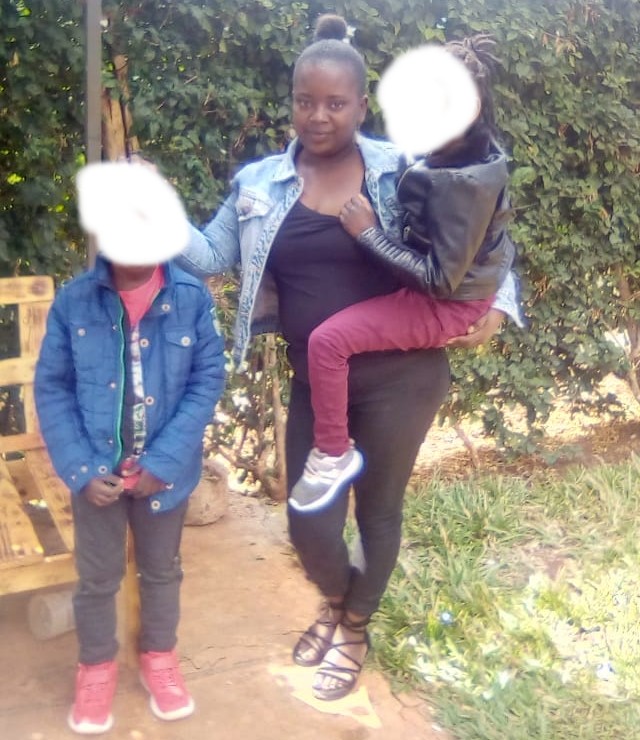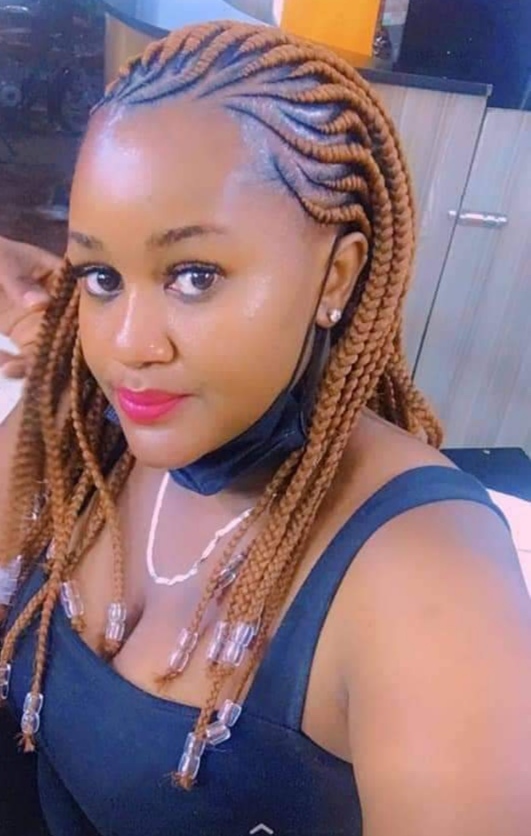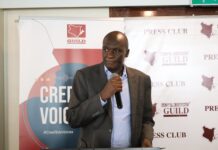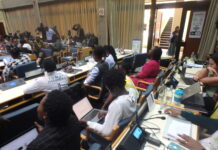By Calister Bonareri
Nairobi, Kenya: At an early age, Maureen knew she wanted to be a hairdresser.
“I grew up in Nyeri and went to school there. When I finished high school, I went to college and studied hairdressing and started plaiting people’s hair,” says the 30-year-old mother of two, stretching her back for a 3rd time since we sat to begin the interview.
She arrived at the salon at 8 Am, an hour later than her expected time by her employer. She kept complaining about her back as I sat waiting for her to finish cleaning since, apart from braiding for a commission at the salon, she’s also paid ksh. 7000 to open and clean the salon at 7.00 am six days a week.
“I usually drop my ten-year-old daughter at daycare every morning, and I have to carry her on my back for 2 km since she is autistic and cannot walk. My seven-year-old son is independent, so at least he can walk to school after I leave for work.”
“When I wake up I must cook for the kids and feed the older one before I drop her off. So sometimes it’s hard for me to beat the traffic from Kikuyu to Westlands and be on time. I can’t afford to hire a house help yet,” she sighs.

Maureen is one of the many women in Kenya shouldering the responsibility of providing for her two children. She is a domestic violence survivor and a mother to a child who is autistic.
“When I got married all was well and I delivered Yvonne without any complications. When she turned three, she fell ill and was diagnosed with meningitis. I was admitted for three months but it was too severe it affected her brain leading to autism.”
“At first, I didn’t know she had it until I realized she had missed most developmental milestones. When she had not walked for two years, I took her to the hospital, and she was diagnosed. We started physiotherapy, and soon she could sit,” she recalls.
When Yvonne turned four, she decided to have a 2nd child and gave birth to Ryan. Soon after, her marital problems started. Her husband became addicted to alcohol, citing that he was depressed. He’d take it out on Maureen in the presence of her children.
“one day he hit me with a panga on the head!”
At this point, Maureen was the provider in the house. She had set up a small salon in the neighborhood and had gotten a good customer base because of her outstanding services.
“He didn’t want me to go to work. He kept calling me a prostitute because I work as a hairdresser. I couldn’t even take Yvonne to therapy without him beating or abusing me verbally just for delaying at the hospital.”
UN Women estimate that sexual/lifetime partners commit 40% of violence against women.
Due to the mental stress resulting from the violence, Maureen had to close her salon business and move.
“The environment was so toxic that Yvonne would tremble when her father had violent episodes. I decided to save my children from that toxic environment.”
Maureen had saved ksh. 10,000 from her business, she used the money to rent a single room in Kikuyu town. With no money to start a new salon and no clients, she got a job in a salon in Westlands, Nairobi, through a friend.
“It’s tough being a single mother, especially with a physically challenged child. Yvonne is now 10 years, she is yet to walk since I couldn’t afford therapy while living in an abusive marriage.”
Maureen carries Yvonne two kilometers to the daycare center, where she pays ksh.150 daily. If she gets a client late in the day, she gets home late and has to pick up Yvonne and pay an extra ksh.50 to extend the time.
“I am so grateful to even when there are days I don’t get a customer, at least my children are in peace. I pray that I get enough customers to save enough money so I can set up a small salon near my house. This means I can stay with Yvonne and spend enough time with the children. Also having my own business is more profitable.”
According to the United Nations Department of Economic and Social Affairs, Division for Inclusive Social Development, for the poor, labor is often the only asset they can use to improve their well-being. Hence, creating productive employment or business ownership opportunities is essential for poverty reduction and sustainable economic and social development.
She got Yvonne registered as a person with disabilities; however, she hasn’t received any assistance from the government for three years since she got the card.
Maureen hopes to one day be stable enough to resume Yvonne’s therapy sessions which cost ksh. 750 per week, so that she can, at the very least, start walking hence she can be accepted in an autism school.
Currently, this is impossible since it costs her about ksh.350 for Yvonne’s daycare and diapers every day. She’s also unable to provide a nutritious meal for Yvonne as required for her condition.
As we return to the salon, she giggles anxiously and says, “I hope today I’ll get a client,” a phrase I believe she says daily as her children’s lives depend on it.














